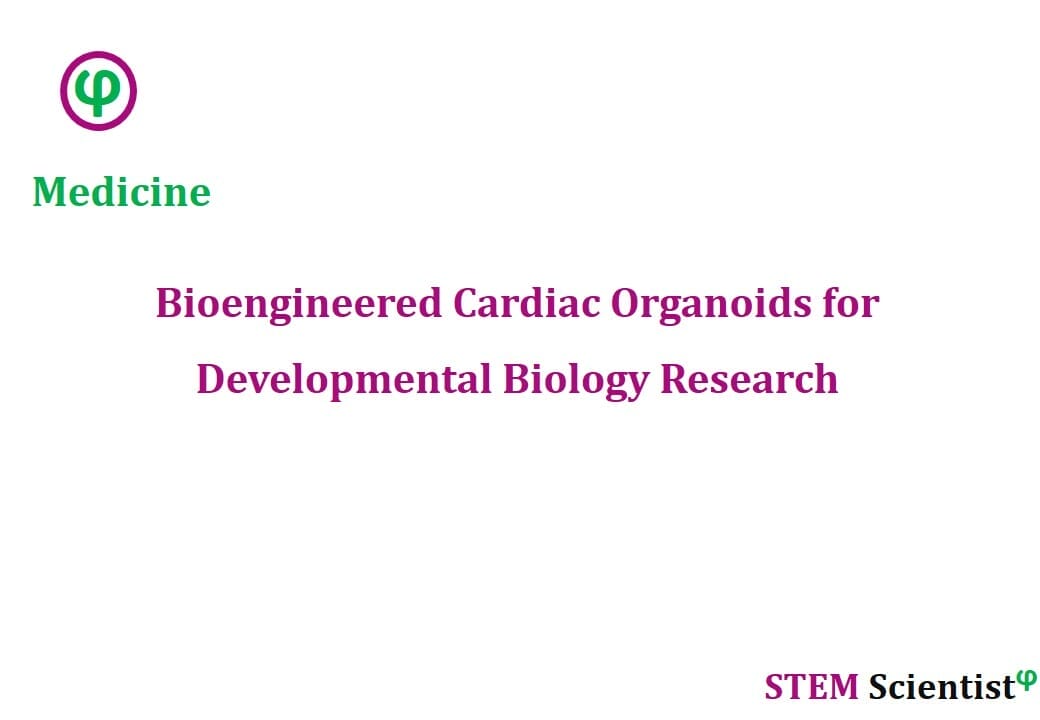
The following study was conducted by Scientists from Department of Biomedical and Chemical Engineering, Syracuse University, Syracuse, NY, USA; BioInspired Syracuse Institute for Material and Living Systems, Syracuse, NY, USA; Masonic Medical Research Institute, Utica, NY, USA; Department of Pediatrics, Child Study Center, Yale School of Medicine, New Haven, CT, USA. Study is published in Stem Cell Reports Journal – Cell Press Publishing as detailed below.
Stem Cell Reports Journal – Cell Press Publishing (2021)
Engineering Spatial-Organized Cardiac Organoids for Developmental Toxicity Testing
Highlights
- Micropattern-based geometric confinement directs cardiac organoid development
- Cardiac organoid structure-function relationships are guided by organoid size
- Cardiac organoids can be used as an in vitro embryotoxicity assessment tool
Summary
Emerging technologies in stem cell engineering have produced sophisticated organoid platforms by controlling stem cell fate via biomaterial instructive cues. By micropatterning and differentiating human induced pluripotent stem cells (hiPSCs), we have engineered spatially organized cardiac organoids with contracting cardiomyocytes in the center surrounded by stromal cells distributed along the pattern perimeter. We investigated how geometric confinement directed the structural morphology and contractile functions of the cardiac organoids and tailored the pattern geometry to optimize organoid production. Using modern data-mining techniques, we found that pattern sizes significantly affected contraction functions, particularly in the parameters related to contraction duration and diastolic functions. We applied cardiac organoids generated from 600 μm diameter circles as a developmental toxicity screening assay and quantified the embryotoxic potential of nine pharmaceutical compounds. These cardiac organoids have potential use as an in vitro platform for studying organoid structure-function relationships, developmental processes, and drug-induced cardiac developmental toxicity.
Source:
Stem Cell Reports Journal – Cell Press Publishing (2021)
URL:https://www.cell.com/stem-cell-reports/fulltext/S2213-6711(21)00143-0
Citation:
Hoang, P., Kowalczewski, A., Sun, S., Winston, T.S., Archilla, A.M., Lemus, S.M., Ercan-Sencicek, A.G., Gupta, A.R., Liu, W., Kontaridis, M.I., Amack, J.D., Ma, Z., 2021. Engineering spatial-organized cardiac organoids for developmental toxicity testing. Stem Cell Reports 16(5), 1228-1244.


